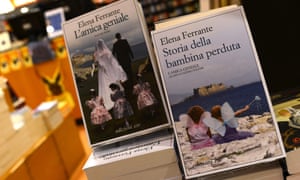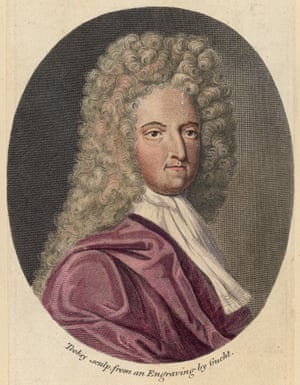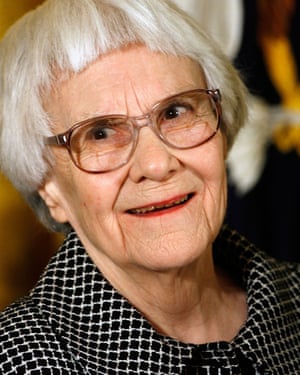The supposed exposure of the much-feted novelists true identity has caused a lot of outrage this week. From Jane Austen to Banksy, countless artists have tried to stay in the shadows, but it only makes people want to know more

Some all-too-anonymous writers will look at this weeks exposure of the millionaire literary superstar Elena Ferrante and find that sympathy does not come out of them without a fight. Others will see a private artists freedom ruined for ever and weep for her. For writers, thats the trouble with being anonymous. It is difficult to be the right amount.
To bring you up to speed: Elena Ferrante is the nom de plume of an Italian writer (or at least a writer of Italian) whose true identity has been a mystery since her (or his) first novel, Troubling Love, was published in 1991. Until recently the mystery was confined to Italy, where various writers, translators and publishers have been proposed as possible Ferrantes. In the past three years, however, she has become a mythic figure all over the world following the success her Neapolitan novels, about two clever women who grow up poor in postwar Naples.
Then, last Sunday, the Italian investigative journalist Claudio Gatti published a new theory. By studying public real estate records, he found that a couple connected to Ferrantes Italian publisher, Edizione E/O, had bought an expensive apartment in Rome in 2000, then another one this summer. Gatti also has documents from an anonymous source that he says show inexplicably large payments from the publisher to one member of the couple, more or less at the time you would expect Ferrante to be getting her big international royalties, and more or less in the right proportions as her sales increased. No one so far has seriously suggested he is wrong. No one likes him, either.

You will have noticed that I have not named the person Gatti identifies. In many interviews by email, Ferrante has said that being anonymous is crucial to her writing. I have gained a space of my own, she told Vanity Fair last August, a space that is free, where I feel active and present. To relinquish it would be very painful. If so, then Gatti may have strangled any future Ferrante novels, a serious crime if you admire her work. At the very least, he has probably made her suffer.
In August 2006, when the Sunday Times was about to expose Zoe Margolis as the Girl With a One-Track Mind, whose explicit blogs about her sex life had attracted tens of thousands of readers every day, their acting news editor, Nicholas Hellen, sent her an email. According to Margolis, it explained all the details that identified her, including her mothers job and address. It added that they had photographed her outside her flat, but the picture was not particularly flattering. I think it would be helpful to both sides if you agreed to a photo shoot today so that we can publish a more attractive image, Hellen allegedly said. We would expect you to provide your own clothes and makeup. As the story will be on a colour page, we would prefer the outfit to be one of colourful eveningwear.
Margolis cried, and did not answer. There was no reason to reveal my identity, she says now. No reason to destroy the anonymity I had, other than to titillate their readers. Im still disgusted by their completely unjustified behaviour and I stand in solidarity with other writers who have gone through similar experiences. Months of fallout followed. Her work in the film industry became impossible. Often she had to field calls from friends who were being pestered by reporters.

Richard Horton had the same experience. He was the police officer behind NightJack, which won the Orwell blogging prize in 2009. Like Margolis, he had begun writing anonymously because it let him be truthful without damaging his life. Like Margolis, he never planned to reveal who he was. Then he was exposed by the Times in his case, because his email was hacked. We had photographers camped outside the door and people trying to phone me at home, says Horton. The experience scared his wife and children. We had to go away for a few days until things died down. I regret what happened to them as a result of my identity coming out more than anything else.
Legally, Ferrante has no good options. As an Italian, which Gatti says she is, she would have the right to respect for her private and family life under Article 8 of the European Convention on Human Rights. In order to bring a claim against Gatti or his publishers, however, she would need to demonstrate specifically that she had a reasonable expectation of privacy in relation to her real name. I dont think that public interest justifies the exposure, says Jeremy Clarke-Williams, a specialist in privacy and defamation law at Slater and Gordon, but I dont think we reach that stage, because I dont think Elena Ferrante would be able to show that she had a reasonable expectation of privacy. Gatti sharing details of her finances might put her on stronger ground, but she would only lose more privacy by going to court. If she wants this to go away, Clarke-Williams says, or quieten down at least, its probably better for her to do nothing, rather than launch a court case where the media can sit back and enjoy the show.
It is interesting that writers cannot reasonably expect to keep their names unpublished, given how many have down the years. Daniel Defoe published as Robinson Crusoe, Jonathan Swift as Lemuel Gulliver (with phoney portrait). Aphra Behn published pseudonymously. So did Henry Fielding. Samuel Richardson was anonymous and Jane Austen was just a Lady. Horace Walpole, all three Bronts and George Eliot all had noms de plume, and Eliots stuck. Even today, the famously anonymous are everywhere you look. Theres the world-famous artist Banksy, and one of the worlds most famous computer scientists, Satoshi Nakamoto, who invented bitcoin (and is probably not Craig Wright). The Old Bailey has just convicted one of Britains most famous journalists Mazher Mahmood, or the Fake Sheikh of conspiring to pervert the course of justice with one of his pseudonymous stings. Then there are the bloggers, including the Gay Girl in Damascus (who turned out to be none of those things). The Guardian itself has spawned the Secret Footballer, Secret Teacher, Secret Actress and Secret Policeman. It is clear that people often do expect to express themselves anonymously. Perhaps it is just not reasonable to expect things to stay that way.
It was pretty hard to have to keep such a big secret from people family, friends, colleagues, lovers, Margolis says. When I got my publishing deal, I wanted to shout it from the rooftops, but had to remain quiet. That was hard. To be so proud of something and not be able to share it is quite tough. The technical aspects are scarcely any easier. Brooke Magnanti is a research scientist who blogged as the call girl Belle de Jour until 2009 when, fearing that her identity was about to be revealed in a newspaper, she revealed it herself in a different one. She had managed six years of anonymity under intense pressure, and her own guide to online privacy shows it wasnt luck.
Highlights of the Magnanti method include: changing your email account twice a year and knowing which providers to avoid; knowing how to remove metadata from text documents and media files; learning how to use VPNs and Tor, and how to tell if your IP address is accessible; setting yourself up as a silent partner in a new company run by your accountant. At one point Magnanti installed a keystroke logger (which makes a secret record of all the buttons pressed on your computer) and found that someone close to me was spying on me when they were left alone.

Gattis justification for his scoop is vague. It centres on Ferrantes new book not a novel, but a collection of letters, essays and other pieces of nonfiction called Frantumaglia. According to its publisher, it answers many of her readers questions, but if Gatti is right, some of the answers are lies specifically that Ferrantes mother was a Neapolitan seamstress who spoke the Naples dialect, and that Ferrante herself grew up in the city until she ran away. He also contends that she is lying with a purpose: These crumbs of information seemed designed to satisfy her readers appetite for a personal story that might relate to the Neapolitan setting of the novels themselves.
To unmince those words, Gatti is saying that Ferrante wants people to believe she rescued herself through education from the slums of Naples, just as the Elena in her novels does. If people believe this, it would make the novels more than just the story of a woman overcoming poverty and patriarchy; it would make them an example of it happening for real. Seen this way, buying Ferrante becomes a kind of vote for feminism, and attacking her almost a vote against it; thus concocted sisterliness, not literary quality, explains the books success.
Whatever you believe, Im sure theres no need to explain why a man implying this would raise such fierce feelings. Even at the best of times there is a widespread view that female novelists are considered great more grudgingly than male ones. In any case, Gatti does not get close to proving that Ferrante had a scheme to deceive her readers, and proof is meant to matter to investigative journalists. Certainly, Ferrante is no Rahila Khan.
Who? In 1987, Virago published Down the Road, Worlds Away, a book of stories by a little-known British Muslim woman. Khans work, mostly about the hardship of Asian teenagers in modern Britain, had been broadcast on BBC Radio and much praised. An article in the Times Educational Supplement said that her first story almost persuaded me that literature still has some relevance to life.
Khan was shy about her fame, perhaps not surprisingly, although she took her shyness awfully far, never meeting or even speaking to her radio editor, her publisher or even her agent. There turned out to a simple explanation. She was the Reverend Toby Forward, an Anglican vicar in Brighton who believed that fiction by vicars wasnt taken seriously. When Virago found out, they were outraged, and withdrew the book from sale. Forward now writes childrens books, and has always argued, as Lionel Shriver did so shockingly at the Brisbane Writers festival last month, that fiction writers are supposed to imagine being other people. That doesnt mean you get it right, however. For instance, he imagined that Virago wouldnt mind.
Ferrante has no need to justify her anonymity. She can do whatever works for her. Interestingly, Clarke-Williams thinks that not even proven hypocrisy on her part would legally justify her exposure in the public interest. All shes doing is writing fiction which has struck a chord, and she may or may not have had the personal experience I think a writer of fiction is expected to make things up!

Even so, it is worth considering her other choices. JD Salinger, Harper Lee and Thomas Pynchon have all shown that novelists need not conceal their names in order to be little-known. On the contrary, by making her identity a secret, Ferrante inevitably made it much more interesting, not least because it gave people cause to wonder whether she had something autobiographical to hide. She seems to have been drawn into all those interviews in an effort to explain herself.
She has mentioned being inspired by Jane Austen, whose anonymity made a great impression on me as a girl of 15, but Charlotte Bront is instructive, too. She published Jane Eyre as Currer Bell, with her sisters Emily and Anne being Ellis and Acton. Besides being averse to personal publicity, they had chosen pseudo-male names because of a vague impression that authoresses are liable to be looked on with prejudice; indeed, rather than spending all its energy on Jane Eyre, the world spent much more on guessing who Currer Bell was, and especially which sex. This just made Charlotte more reluctant to reveal herself, which was torture when she realised that several of her literary heroes Dickens, Thackeray, Martineau were eager to meet her if she would just drop by. By the time her next novel, Shirley, was published, she was worried that her mail would be opened at the local post office. (A reminder that hacking was not invented with computers.) In the end, she gave in.
The point then, as now, as always, is that you cant seek attention for your work and hope that none seeks you. You cant choose absence. You can only choose to be yourself, or to be a mystery, and people who dont love mysteries cannot love novels either. Besides, of course it matters who the author is, at least eventually. Otherwise there could still be someone saying that Middlemarch, Jane Eyre, even Pride and Prejudice, were too good to be written by a woman.
